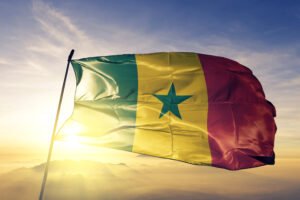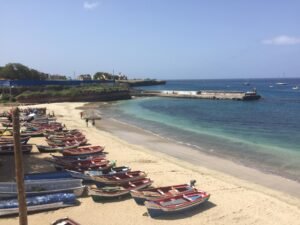Her curiosity was piqued as she marvelled at how this 11-year old displayed such a profound understanding of African affairs. This led her to ask me an intriguing question that many parents in the diaspora might resonate with:
“How did your son become so well-versed in African affairs, and how have you managed to instil in your children the sense that Africa is home, despite them having spent very little time there?” A casual conversation at the bus stop had transformed into an impromptu lesson on Africa encompassing its history, geography and economics.
In today’s article, I delve into a question posed by a lady we recently met in London, one that resonates deeply with the themes of our ongoing journey. As always, PackLyst is a platform where I share insights and reflections on my family’s decision to relocate back to the continent of Africa.
This week, however, we explore a particularly poignant interaction that sheds light on how we, as a family, maintain and nurture our connection to our African roots, even while living in England. Join me as I unfold the story of this encounter and the valuable lessons it imparts, further enriching our narrative of returning to our ancestral land.
I share the journey and strategies I employed to shape my children’s perspectives about their African heritage.
My approach has been multifaceted, integrating stories of our ancestors, engaging in discussions about events on the continent and trying to celebrate our Sierra Leonean heritage every day. I have endeavoured to bridge the physical distance by integrating Sierra Leone’s (and other parts of Africa’s) rich traditions, music, cuisine and art into our daily lives. In essence I have created an environment where Africa is not just a distant land, but a vibrant, living part of my children’s identity.
This article goes beyond my family’s story; it’s an exploration of how we, as a community living away from our ancestral land, can foster a deep, enduring connection to our roots in our children’s hearts, helping them to appreciate and identify with their African heritage no matter where they are in the world.
Parenting is quite the rollercoaster, especially for African parents living in the northern hemisphere. It’s a journey full of ups and downs, each day bringing its own unique set of challenges and wins. This is particularly true for those raising black children in the major cities of England. The frequent news reports of young black boys, often victims of gang-related violence in the streets of London, inevitably raise concerns and doubts. Such realities prompted me to question whether the UK is the right environment for us, especially when considering the safety and wellbeing of my children.
This is the story of how I shaped my children’s perspectives to get to this point.
1. Understanding Identity
As I raised my children, my goal was to embed in them a strong sense of who they are, along with resilience and insight – qualities that would prepare them for a globalised world while keeping them rooted in their heritage.
My father was a pan-Africanist so it is no surprise that I understood from the very beginning that my children’s identity would be the bedrock of their confidence and worldview. I recognised the need to establish a strong foundation in their African identity in a world where they would encounter diverse cultures and sometimes conflicting values. I invested time in teaching them Krio, the most widely spoken language in Sierra Leone, and took advantage of the home-schooling situation during COVID to focus their history, geography and current affairs lessons solely on Africa and its role in the global landscape. Every lesson was a celebration of their heritage, every story a thread woven into their personal self.
I positioned education not just as a route to their success but as a tool for community and continental development. I have nurtured in my children an understanding that their education is a privilege and a responsibility.
Naturally, we’ve always embraced the works of African authors, like Namina Forna. It brings my children immense pride and joy to be able to say, “She’s Sierra Leonean,” just like us.
2. Embracing the Continent’s Diversity
I believe my children will be as comfortable in Rwanda as they are in Sierra Leone. This is because I have always taught my children that Africa is not a monolith but a tapestry of cultures, languages and perspectives. I have exposed my children to as many of these as possible. Family vacations are often educational tours across different African countries.
These experiences provided context for my children, teaching them the interconnectedness of African nations and the diversity within our borders. I have always encouraged them to ask questions, to engage with locals and to see the similarities and differences as strands of the same majestic African cloth. It’s no surprise that the Ivorian Kedjenou has become the most cherished dish in our household.
3. Promoting Resilience and Adaptability
Living in Africa, just like anywhere else, has its challenges. I made sure my children were aware of these realities, not overly sheltering them from the difficulties many people in our community face. I volunteer weekly at a homeless shelter in London to teach my children the principle of ‘Ubuntu’—the idea that ‘I am because we are’. It’s important to me that they learn resilience by confronting and overcoming obstacles, rather than sidestepping them.
The Result: Well-Rounded Africans
Today, my children are products of this careful nurturing. They are confident in their African identity, knowledgeable about their heritage and equipped to face the world’s complexities. They are curious, resilient and compassionate young leaders who understand the importance of their contribution to Africa’s future.
Their perspectives are as broad as the savannahs and as deep as the continent’s rich mines. They approach the world with an open mind, a strong sense of purpose and a commitment to contributing positively to our home, Africa.
Our journey has not been without its challenges, but the reward lies in witnessing the blossoming of my children into individuals I am proud to introduce to the world. They stand tall, not just as Africans, but as global citizens ready to make their mark.
As African parents, we have a unique role to play in nurturing not just the next generation of Africans but the next generation of world changers. We are tasked with the responsibility of laying the foundations upon which the future will be built.
My hope is that sharing my experience will inspire other parents to do this noble work with passion and vision.




